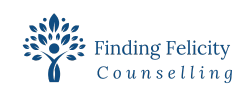Written by Tracy Shirvill
Last week I attended Nepean Blue Mountains Primary Health Network’s Dying to Know Day morning tea. Dying to Know Day is an annual event which encourages people to talk about death and dying. This year the theme of the event was the importance of advanced care planning. What it is, the resources available, and why an advanced care directive is important regardless of age or circumstances.
In its simplest form, end of life planning is no more complicated than preparing for a fire evacuation. It can be a list of people to call, where to meet, where the important documents are, and who’s responsible for what task. We do evacuation training every year in our workplaces so that if there is a fire, we all know what to do. And just as with fire evacuation training, there are people who can help you.
Talking about death and dying is something that most of us try to avoid. It can be uncomfortable, confronting, and emotional to talk about. It can bring up feelings of sadness for loved ones who have died, fear of the unknown, and even thoughts about the life choices we are making. But death is a life event that we will all experience. We hope that we can leave it to later but the truth is none of us are promised tomorrow. Like many things in life, it is easier to talk about death and dying when everything is well instead of waiting until there is an emergency.
I often find that end of life planning becomes the responsibility of women. Women are seen as the designated carers within families. The ones who are good with emotional work. The women I have talked to have said that they took on the responsibility because they were the eldest child, or the sibling that isn’t married or doesn’t have children. Some said that as the only girl in the family, care-taking was given to them by default. Women are expected to leave their jobs or reduce their hours to care for family, arrange appointments, meet with doctors, cook meals, and arrange access to services. They are also expected to provide emotional support, not only to the person they are caring for but to other family members as well. But it doesn’t need to be this way.
Campaigns like Dying to Know promote community, literacy, and choice, empowering individuals and families in both life and death. Families can look to counsellors, death doulas, and palliative care services to help support them.Fear of death and dying can hold us back from achieving our goals. Likewise, talking about death and dying can inspire us to live life to the fullest. Take this opportunity to start the conversation in your family. Bring it up the next time you catch up with your friends. Let’s continue to make conversations about death and dying a normal part of life.

